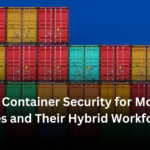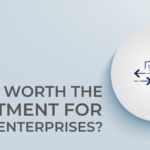Cyber-attacks are on the rise nowadays because perpetrators have the edge and are highly motivated. In today’s scenario, no business can be counted safe from security risks and breaches, including the small businesses. Hackers take advantage of the lax security measures companies employ and steal sensitive information that dents the business. Here are 5 most important things that a small business should follow to reduce the security risks and stay safe from hackers or intruders:
1. Employ proper password management system
Businesses need to have strict password policies for reuse and strength of user login credentials. In addition to providing separate user accounts for every employee and stakeholder, businesses also need to employ a password management system or policy that protects and limits the access to only intended set of people.
Some of the things that can be implemented in your password management policy are:
- Change a password every 3 months
- Never use default passwords on devices, servers or third-party applications
- Enforce strong passwords: Use of symbols, numbers and 8 characters, etc.
- Sharing of passwords should not be practised
2. Install and update security patches as a regular practice
Businesses rely on a lot of third-party services, software and applications for the continuity. If they are not updated and maintained properly can pose a serious security threat for the organization. It is imperative that every organization should get notified about the latest security patches, have them implemented and ensure they are secure.
Some of the best practices to ensure security patches are updated the right way:
- Enable notification system to stay updated about the latest patches
- Enforce weekly, monthly or quarterly updates based on the sensitivity
- Maintain records of all the patches and versions
- Educate IT teams about the importance of patches
3. Use an access management tool
Every organization, be it big or small have different stakeholders at different levels who will have access to the business data. Without a proper access management strategy, the data access will not be filtered and might end up in the wrong hands.
It is very essential for every company to be able to control and monitor data access for different stakeholders. Using an access management tool will help with doing just that. It not only enables organizations to provide access to the right resources to the right personnel, but also helps in understanding the usage pattern, stats and control the data flow.
Some of the things access management tools are equipped with include:
- Enables organization to provide access to the right people at the right time
- Activates 2FA for all the users
- Helps organization control the data flow within and outside of the system
- Provides insights to secure data better
Explore solutions provided by CACHATTO for your data access management needs –https://www.cachatto.in/product/
4. Raise awareness within the organization
It’s important for everyone in the organization to be savvy and alert about security issues. Organizations have to train their employees, vendors and other stakeholders having access to any business data about the best practices to ensure data security. It can be as simple as having strong passwords to something complicated as educating about the phishing emails or malware, organizations will have to put effort into making their stakeholders understand and implement best practices. It is also important to note that data security awareness is not a one-time activity but should be a part of repetitive activities within the organization which are practised and updated frequently.
5. Implement encryption for all the business data
With plain data formats like MD5, it is easy for hackers to steal data and use them with bad intentions. Even with tight security and world-class security implementations, organizations are hacked. It makes sense for every organization to encrypt all their business data so that hackers cannot gain access to any information even if they are able to get access.
Some of the ways this can be achieved include:
- Listing all the sensitive data which can be leaked or hacked
- Employing an encryption tool with recovery option to encrypt them
- Look for built-in encryption options and activate them
- Monitor and ensure data security is handled properly after implementation
A small negligence can cause a huge loss for any company and dents the credibility lifetime. Having a proper security system and policies to ensure all sensitive data is protected and managed the right way will come a long way rather than acting after getting affected or hit by the treats.
So, implement these 5 action items on priority if not done yet and be checking on them as a regular practice so that your small business ensures security measures are met.
If you are on a lookout for an security tool to manage data access, control data flow and be updated with xindustry best practices, check out – https://www.cachatto.in/product/





